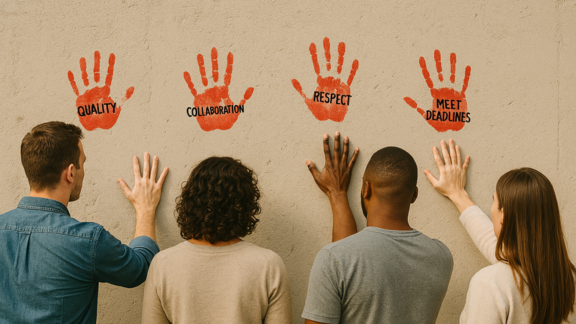
Chapter 1
Team habits
“Excellence is not a singular act; it’s a habit.”
– Aristotle



The keystone habit concept
Borrowed from Charles Duhigg, a keystone habit triggers other positive behaviors.
Identify a single practice (e.g., a daily 15-minute stand-up) that, once ingrained, cascades into better communication, accountability, and trust.






Psychological safety rituals
Daniel Coyle emphasizes that teams with high trust share small but frequent signals of safety—like check-ins and open questioning.
Developing a ritual of “safe-to-share” moments each meeting fosters honest dialogue.






Shared language of values
Successful teams develop shorthand that reinforces core principles.
Whether it’s “Team Over Ego” or “Clients First,” repeated mantras become habit-forming, guiding decisions and actions.






Weekly reflection
Consistent reflection—captured in a short “What went well? What can we improve?” format—reinforces a continuous improvement mindset.
This habit, once rooted, shifts the culture toward iterative learning.






Public commitments
James Clear highlights that external accountability strengthens behavior change.
When teams publicly commit to specific goals or milestones, the pressure of group visibility helps maintain momentum.






Feel free to share with your colleagues
Give feedback, ask questions or request new resources


